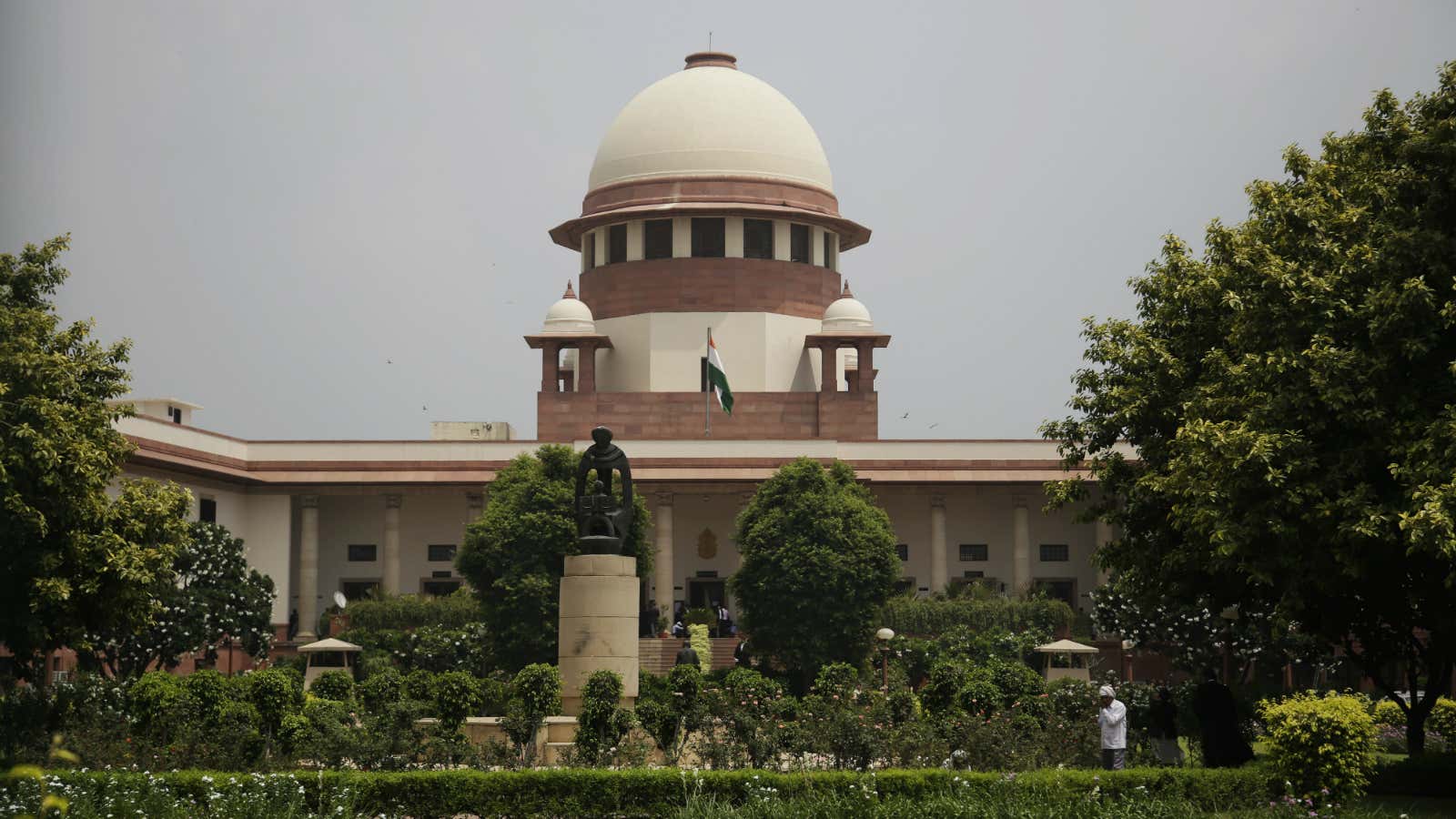In a landmark judgement, India’s supreme court today (Aug. 24) ruled that privacy is a fundamental right—a ruling that could have a far-reaching impact on the Aadhaar project, besides other government schemes.
A nine-judge constitution bench unanimously concluded that the right to privacy is intrinsic to freedom of life and personal liberty, enshrined under article 21 of the Indian constitution and, therefore, must be considered a fundamental right.
This judgement settles a question that has been hanging fire since at least August 2015, when the supreme court first decided to set up a constitution bench after a clutch of petitions argued that the Aadhaar project violates an individual’s privacy. The petitioners, including former Karnataka high court justice KS Puttaswamy, had contended that the biometric information being collected under Aadhaar—the 12-digit unique identification number—was a breach of privacy. They also raised other concerns, including the mandatory application of Aadhaar across multiple government schemes.
The Narendra Modi government, however, countered that the Indian constitution did not provide for a fundamental right to privacy, and cited two earlier judgements—from 1954 (eight judges) and 1962 (six judges), respectively—to back its stand. Although subsequent supreme court rulings had bolstered the idea of a right to privacy, the government said the later ones were delivered by benches of fewer than eight judges. So the supreme court had put together a bench of at nine judges to settle the matter.
Eventually, it took over two years for such a bench to be formed, with six days of hearings on the matter beginning July 18 (full details of arguments here).
On behalf of the petitioners, a phalanx of legal heavyweights, including Gopal Subramanium, Soli Sorabjee, Arvind Dattar, Shyam Divan, and others reasoned that privacy was essential and inalienable. In response, the government held that privacy could be sacrificed to ensure that welfare measures reached the deprived, and fully backed the Aadhaar programme, which it had been steadily expanding despite the court’s directives to the contrary.
However, with this seemingly unambiguous judgement, not only will the Aadhaar project and its biometric collection come under closer scrutiny, the Modi government’s fevered push to make the platform mandatory for an ever-growing list of services and welfare programmes will also be deeply examined.
